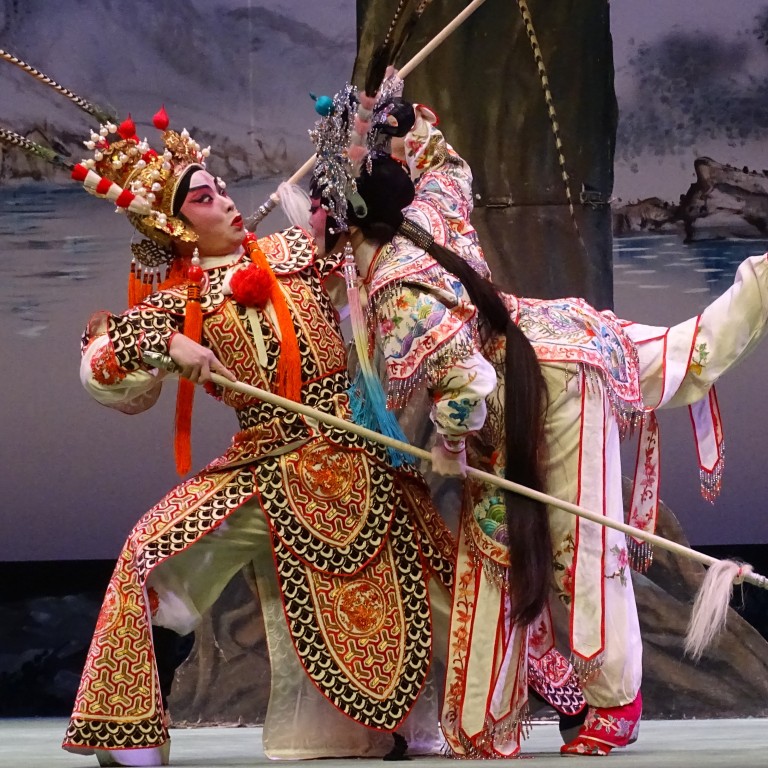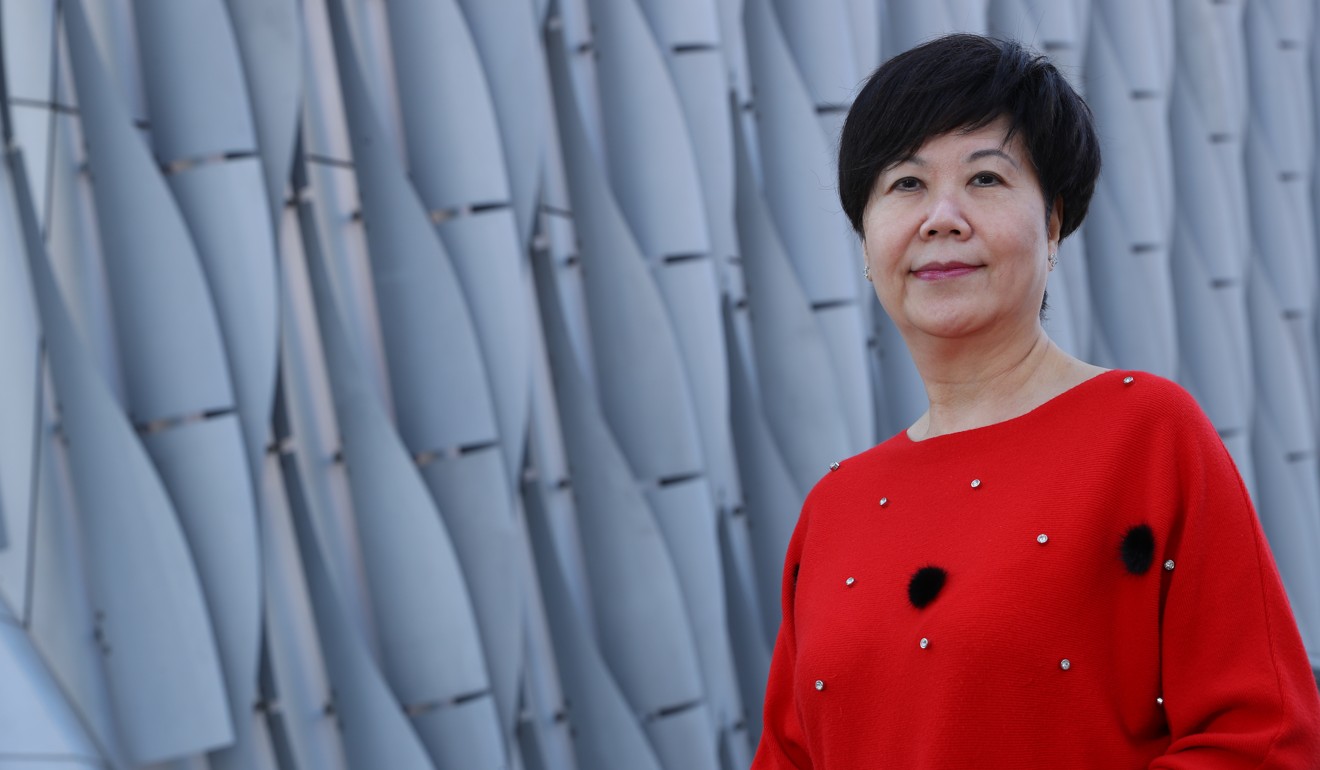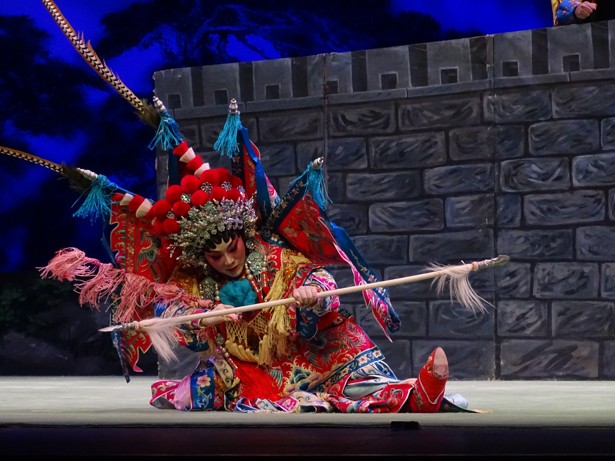
Why intended users of US$340 million Hong Kong theatre complex may perform elsewhere
- Intended as the new home of Chinese opera in Hong Kong, the Xiqu Centre is too small and its ticketing system unsuitable, say opera groups
- Theatres at the first major venue to open in the West Kowloon Cultural District are also too expensive to hire, say presenters of drama and Western opera
The issues are being highlighted by members of the Hong Kong Cantonese Opera Chamber of Commerce, who are among the first to use the venue custom-built for traditional Chinese opera. It is the first major venue to open in the much-delayed cultural district.
As part of the Xiqu Centre’s opening season, the chamber’s “Spring Festival Showcase” of 13 operas is currently being staged rent-free at the venue’s Grand Theatre; opera companies have also been exempted from paying the usual 8 per cent box office commission.
The chamber, which represents the owners of 10 local troupes that account for 70 per cent of annual Cantonese opera productions in the city, is disappointed that it only has 980 tickets to sell per show, with around 10 seats reserved for the West Kowloon Cultural District Authority’s internal distribution, says chamber chairwoman Marilyn To Wai Sau-ming.
Xiqu Centre a feather in the cap for Hong Kong
To’s own troupe, called Super Talent International, has sold out shows on February 18 and 19.
“The Grand Theatre is supposed to have 1,075 seats but the number of tickets that we could actually sell was nearly 100 short. That makes a big difference to a show’s financial position,” she says.
The shortfall, the West Kowloon Cultural District Authority explains, is to do with whether the orchestra pit is in use or not. The full 1,075-seat capacity as published on its website is for when there is no live musical accompaniment.

There will be an option to use a smaller orchestra pit, which allows hirers to sell 1,054 seats. “That’s nonsense,” To says. “They should know that Cantonese operas are not Cantonese operas without live music and should have designed a theatre with more seats.”
The authority said it would soon publish a new seating plan on its website to clarify matters. Even at maximum capacity, the Grand Theatre has fewer seats than other venues in Hong Kong used for large-scale Cantonese opera productions, such as The Hong Kong Cultural Centre’s Grand Theatre and the Hong Kong Academy for Performing Arts’ Lyric Theatre.
Another concern is that customers who choose not to buy tickets for the Xiqu Centre online can only buy them at the venue itself, at the Hong Kong Academy for Performing Arts in Wan Chai, and at just three branches of Tom Lee Music, a musical instruments store chain, in Sha Tin and Tsuen Wan in the New Territories and Tai Kok Tsui in West Kowloon.
Tickets can be ordered online and delivered by post at extra cost. The authority says there is an option to self-print e-tickets, and that the majority of its tickets are sold through digital channels.

However, Ricky Ho Yat-ming, owner of Prosperity Cantonese Opera Product Studio, says Cantonese opera regulars tend to be older and therefore less likely to buy tickets online, which makes the limited provision of ticketing counters a major inconvenience. His company put on two shows at the Xiqu centre on February 9 and 10.
The authority is using a HK$4.4 million Singaporean ticketing system called Sistic.
“Sistic is the authority’s major ticketing service provider and we work with other ticketing providers occasionally for the mutual benefit of our customers,” the authority said in a statement. “ Unlike other ticketing services, we don’t charge an additional fee for online booking.”
Ho says he was told by the Xiqu Centre that there may be room for negotiation when it comes to future rentals, which could make the difference between his troupe hiring the venue again and performing elsewhere. “The sound and lights and air conditioning are wonderful,” Ho says.
We have all been looking forward to a new, more user-friendly approach from the West Kowloon Cultural District’s management. It is very disheartening to find out that actually, we won’t be able to afford it
From 2020, Xiqu’s Grand Theatre and the smaller Tea House Theatre will give less priority to hirers who are putting on traditional Chinese operas, the authority says. However, they will still be charged less than hirers who are not presenting Chinese opera, and will be able to book the venue up to 16 months in advance, whereas other groups will only be able to book one year ahead.
Joyce Cheung Pui-wah, co-founder and chief executive officer of Dionysus Contemporary Theatre, welcomes the Xiqu Centre’s decision to open itself to performances of other art forms, but says it is disappointing that the publicly funded project will be out of reach for most local groups because they cannot afford to rent its theatres.
“We have a serious shortage of large theatres in Hong Kong and there are a lot of restrictions in the booking process for Leisure and Cultural Services Department venues such as the Cultural Centre,” she says. “We have all been looking forward to a new, more user-friendly approach from the West Kowloon Cultural District’s management. It is very disheartening to find out that actually, we won’t be able to afford it.”
Public asked to pay further HK$17.5 billion for West Kowloon Cultural District basement
The Xiqu Centre charges a basic rent for its Grand Theatre of HK$22,000 per show for Chinese opera performances (plus box office commission) and HK$44,000 for other art forms, which Cheung says is significantly more than existing government-subsidised venues.
Local music and theatre groups are talking to the authority about using Freespace, a theatre and function hall expected to open in April. The authority has yet to publicise the charges for hiring that venue.
Rumiko Hasegawa, co-founder of More Than Musical, which produces condensed versions of Western operas in Hong Kong, says the rent, for presenters of art forms other than Chinese opera, of more than HK$30,000 a day for the 200-seat Tea House Theatre is beyond the group’s budget. She is talking to the authority about using Freespace.
Editor’s note: this story was amended on February 19 to reflect the fact that self-print e-tickets are an option at the Xiqu Centre

